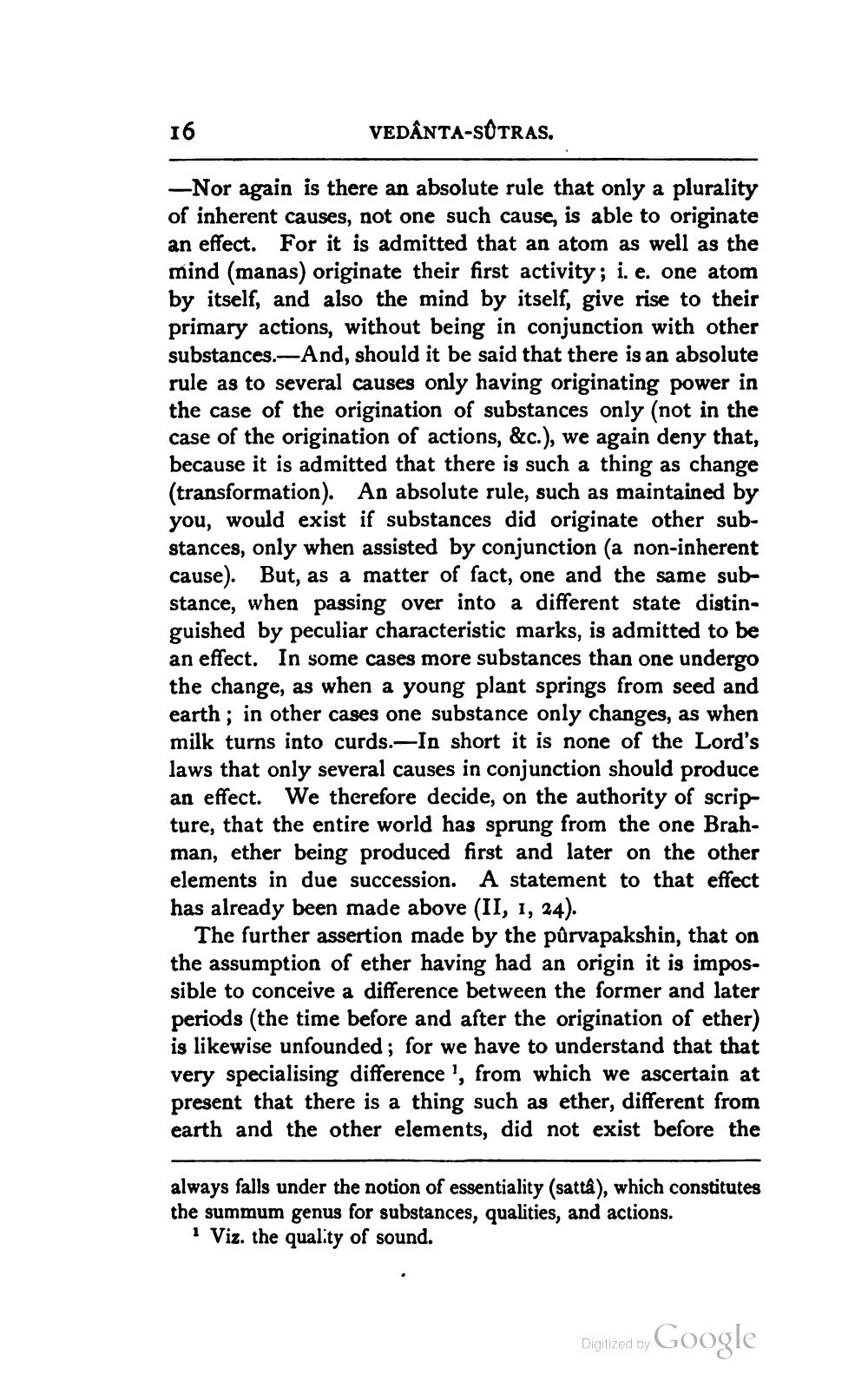________________
16
VEDÂNTA-SOTRAS.
-Nor again is there an absolute rule that only a plurality of inherent causes, not one such cause, is able to originate an effect. For it is admitted that an atom as well as the mind (manas) originate their first activity ; i. e. one atom by itself, and also the mind by itself, give rise to their primary actions, without being in conjunction with other substances.-And, should it be said that there is an absolute rule as to several causes only having originating power in the case of the origination of substances only (not in the case of the origination of actions, &c.), we again deny that, because it is admitted that there is such a thing as change (transformation). An absolute rule, such as maintained by you, would exist if substances did originate other substances, only when assisted by conjunction (a non-inherent cause). But, as a matter of fact, one and the same substance, when passing over into a different state distinguished by peculiar characteristic marks, is admitted to be an effect. In some cases more substances than one undergo the change, as when a young plant springs from seed and earth; in other cases one substance only changes, as when milk turns into curds.-In short it is none of the Lord's laws that only several causes in conjunction should produce an effect. We therefore decide, on the authority of scripture, that the entire world has sprung from the one Brahman, ether being produced first and later on the other elements in due succession. A statement to that effect has already been made above (II, 1, 24).
The further assertion made by the pûrvapakshin, that on the assumption of ether having had an origin it is impossible to conceive a difference between the former and later periods (the time before and after the origination of ether) is likewise unfounded; for we have to understand that that very specialising difference !, from which we ascertain at present that there is a thing such as ether, different from earth and the other elements, did not exist before the
always falls under the notion of essentiality (sattá), which constitutes the summum genus for substances, qualities, and actions.
1 Viz. the quality of sound.
Digitized by
Digilzed by Google




